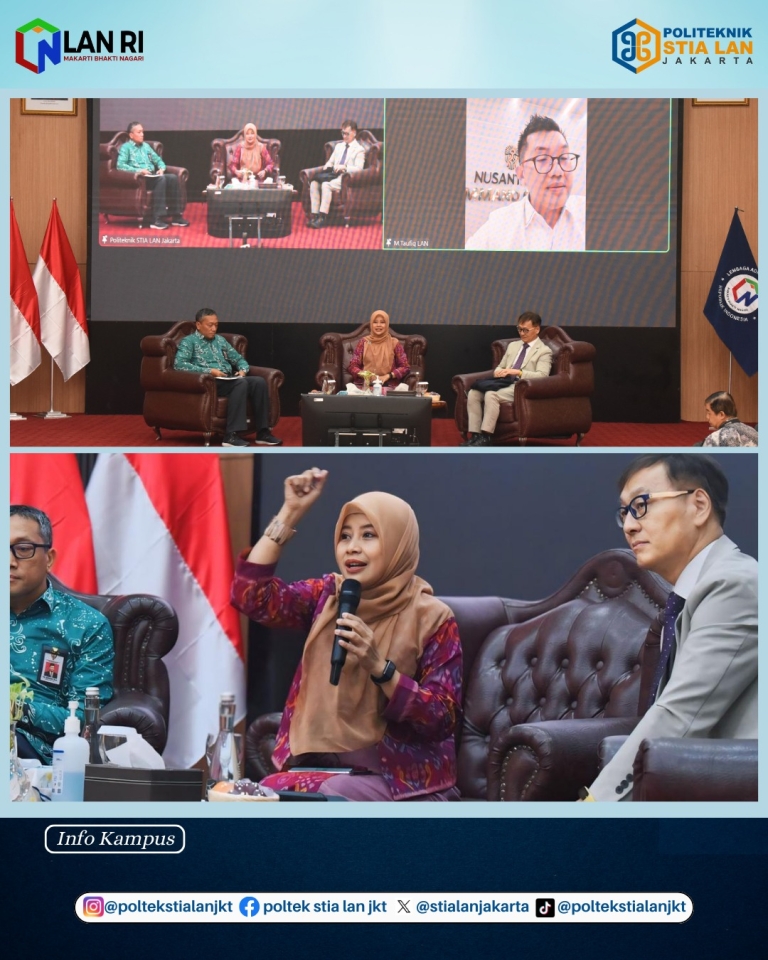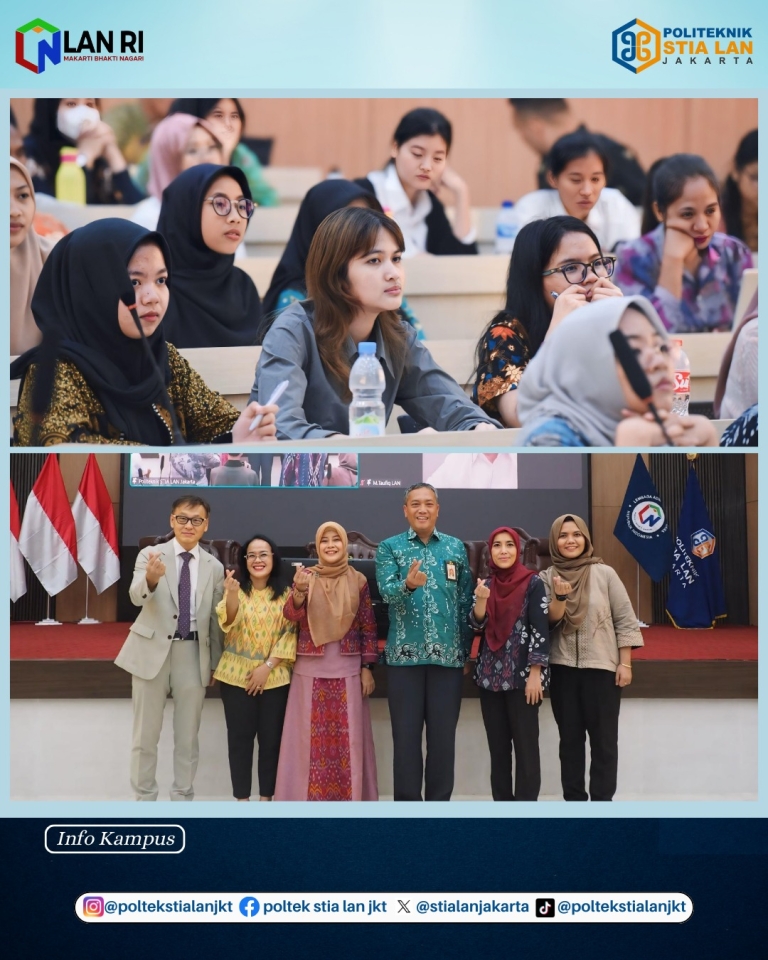
Politeknik STIA LAN Jakarta organized an International Public Lecture titled “The Challenges of Digital Transformation for Strengthening the Capacity of Generations Z and Institutions” on August 27, 2024. The aim of the event was to explore the role of digital transformation in shaping the future of bureaucracy and institutions in the era of Generation Z dominance. The lecture featured expert speakers in the field of digital transformation, such as Dr. Muhammad Taufiq, Plt. Head of the State Administration Institute (LAN), Dr. Tri Widodo Wahyu Utomo, Deputy for Policy Studies and LAN State Administration Innovation, and Prof. Young Hoon Ahn, President of THINK Foundation South Korea. The event was moderated by Prof. Dr. Nurliah Nurdin, the Director of Politeknik STIA LAN Jakarta.
Opening Remarks by Plt. Head of LAN, Dr. Muhammad Taufiq, DEA
In his opening remarks, Dr. Muhammad Taufiq highlighted the role of Generation Z which is increasingly dominating the world of work, especially in bureaucracy and public institutions. According to him, Generation Z is known as the most digitally skilled and cyber-active generation. This is driving a major change in the way public services are delivered, which must now be more collaborative and technology-based.
He also emphasized the importance of adopting collaborative learning styles and digitalization in the education system, which encourages creativity through the use of technology. “Digital transformation is not only about technology but also about changing the mindset and work culture in the bureaucracy, especially in accordance with Indonesia’s RPJP planning that supports digitalization,” he explained.
Views of the Deputy for Policy Studies and State Administration Innovation, Dr. Tri Widodo Wahyu Utomo
Dr. Tri Widodo Wahyu Utomo discussed the impact of technology, pandemics, and Generation Z on global megatrends. He emphasized that Generation Z, heavily influenced by technology, are driving global change.
He stressed the need for the government to establish a digital competency framework for teachers, civil servants, and the general public in order to adapt to the increasingly digital world. Dr. Tri also proposed the creation of a Digital Academy as a platform for the government to develop digital competencies and recruit digital talents. He also emphasized the importance of lifelong learning to ensure that human resources are adaptable to technological changes. On a global perspective, Prof. Young Hoon Ahn from South Korea emphasized the importance of tailored programs to support digital transformation in the public sector. He discussed successful Digital Academies in countries like Singapore, South Korea, and Europe, which prioritize digital competency as a core skill for all levels of society.
According to him, these academies provide a learning ecosystem that not only prepares civil servants for the future but also empowers them through cross-sector collaboration and cutting-edge knowledge. He also emphasized the importance of effective data governance policies to prevent data misuse in the digital era. “The government must take a proactive role in managing data and ensuring reliable digital infrastructure,” he emphasized.
Prof. Dr. Nurliah Nurdin closed by stating that digitalization is a must, not only individually but also the government needs to adopt and integrate digital ways of working to provide services to the community.
The same applies to Politeknik STIA LAN Jakarta, where all must increase their digital capacity, both in terms of business processes, and human resources.
This public lecture provides an in-depth insight into how digital transformation is not only changing bureaucratic work patterns but also preparing Generation Z to face a more collaborative and innovative future. Politeknik STIA LAN Jakarta with its commitment to digital capacity building through education and training continues to play an important role in driving positive change in Indonesia.



